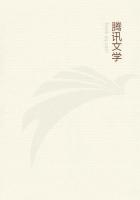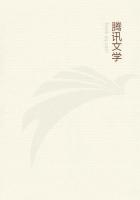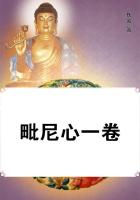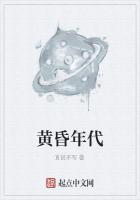They remained standing at the tent door, with the growing moonlight about them. The camp was hushed in sleep, but sounds of music still came to them from the city below them, and fainter music from the tents of the Ouled Nails on the sandhill to the south. After Domini had spoken Androvsky moved a step towards her, looked at her, then moved back and dropped his eyes. If he had gone on looking at her he knew he could not have begun to speak.
"Domini," he said, "I'm not going to try and excuse myself for what I have done. I'm not going to say to you what I daren't say to God--'Forgive me.' How can such a thing be forgiven? That's part of the torture I've been enduring, the knowledge of the unforgivable nature of my act. It can never be wiped out. It's black on my judgment book for ever. But I wonder if you can understand--oh, I want you to understand, Domini, what has made the thing I am, a renegade, a breaker of oaths, a liar to God and you. It was the passion of life that burst up in me after years of tranquillity. It was the waking of my nature after years of sleep. And you--you do understand the passion of life that's in some of us like a monster that must rule, must have its way. Even you in your purity and goodness--you have it, that desperate wish to live really and fully, as we have lived, Domini, together. For we have lived out in the desert. We lived that night at Arba when we sat and watched the fire and I held your hand against the earth. We lived then. Even now, when I think of that night, I can hardly be sorry for what I've done, for what I am."
He looked up at her now and saw that her eyes were fixed on him. She stood motionless, with her hands joined in front of her. Her attitude was calm and her face was untortured. He could not read any thought of hers, any feeling that was in her heart.
"You must understand," he said almost violently. "You must understand or I--. My father, I told you, was a Russian. He was brought up in the Greek Church, but became a Freethinker when he was still a young man.
My mother was an Englishwoman and an ardent Catholic. She and my father were devoted to each other in spite of the difference in their views. Perhaps the chief effect my father's lack of belief had upon my mother was to make her own belief more steadfast, more ardent. I think disbelief acts often as a fan to the faith of women, makes the flame burn more brightly than it did before. My mother tried to believe for herself and for my father too, and I could almost think that she succeeded. He died long before she did, and he died without changing his views. On his death-bed he told my mother that he was sure there was no other life, that he was going to the dust. That made the agony of his farewell. The certainty on his part that he and my mother were parting for ever. I was a little boy at the time, but I remember that, when he was dead, my mother said to me, 'Boris, pray for your father every day. He is still alive.' She said nothing more, but I ran upstairs crying, fell upon my knees and prayed--trying to think where my father was and what he could be looking like. And in that prayer for my father, which was also an act of obedience to my mother, I think I took the first step towards the monastic life. For I remember that then, for the first time, I was conscious of a great sense of responsibility. My mother's command made me say to myself, 'Then perhaps my prayer can do something in heaven. Perhaps a prayer from me can make God wish to do something He had not wished to do before.'
That was a tremendous thought! It excited me terribly. I remember my cheeks burned as I prayed, and that I was hot all over as if I had been running in the sun. From that day my mother and I seemed to be much nearer together than we had ever been before. I had a twin brother to whom I was devoted, and who was devoted to me. But he took after my father. Religious things, ceremonies, church music, processions--even the outside attractions of the Catholic Church, which please and stimulate emotional people who have little faith-- never meant much to him. All his attention was firmly fixed upon the life of the present. He was good to my mother and loved her devotedly, as he loved me, but he never pretended to be what he was not. And he was never a Catholic. He was never anything.
"My father had originally come to Africa for his health, which needed a warm climate. He had some money and bought large tracts of land suitable for vineyards. Indeed, he sunk nearly his whole fortune in land. I told you, Domini, that the vines were devoured by the phylloxera. Most of the money was lost. When my father died we were left very poor. We lived quietly in a little village--I told you its name, I told you that part of my life, all I dared tell, Domini--but now--why did I enter the monastery? I was very young when I became a novice, just seventeen. You are thinking, Domini, I know, that I was too young to know what I was doing, that I had no vocation, that I was unfitted for the monastic life. It seems so. The whole world would think so. And yet--how am I to tell you? Even now I feel that then I had the vocation, that I was fitted to enter the monastery, that I ought to have made a faithful and devoted monk. My mother wished the life for me, but it was not only that. I wished it for myself then.
With my whole heart I wished it. I knew nothing of the world. My youth had been one of absolute purity. And I did not feel longings after the unknown. My mother's influence upon me was strong; but she did not force me into anything. Perhaps my love for her led me more than I knew, brought me to the monastery door. The passion of her life, the human passion, had been my father. After he was dead the passion of her life was prayer for him. My love for her made me share that passion, and the sharing of that passion eventually led me to become a monk. I became as a child, a devotee of prayer. Oh! Domini--think--I loved prayer--I loved it----"

